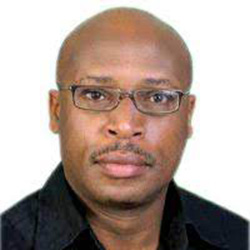PAST experience has often provided an opportunity to take stock of emerging trends to inform the present. The history of the book presents such an opportunity in view of the Internet and worries of “information overload.”


PAST experience has often provided an opportunity to take stock of emerging trends to inform the present. The history of the book presents such an opportunity in view of the Internet and worries of "information overload.”History suggests that worries of "too much information” started early, beginning with the technology that came to be known as the book. This is alluded even in the Bible, where a perplexed complainant in Ecclesiastes 12:12 laments that "Of making books there is no end”. The complaints did not cease with the invention of the printing press centuries later, as books took a firm hold in our lives.Though there are concerns today that people are not reading enough, distraction is yet another complaint the internet is being accused of that the book has similarly historically suffered. In the eighteenth-century, for instance, serious concerns were often expressed that reading the novel was weakening the memory and leading to "habitual distraction” in the profusion of narratives as the idea of the novel evolved. Of course, reading is essential, the reason why we continue to place much importance on books. But in the face of the Web seeming to take over our lives, Nicholas Carr, a prominent commentator, seems to speak of the book speaking in the past: "In the quiet spaces opened up by the prolonged, undistracted reading of a book, people made their own associations, drew their own inferences and analogies, fostered their own ideas. They thought deeply as they read deeply.”Writing a couple of years ago, Carr provoked an enduring debate about whether, with the Web induced information onslaught, Google is making us stupid. He articulated the concern for many that when we read online, we browse, and seem to scan and skim. This suggests that the Web is a flawed medium that facilitates a less intensive, more superficial form of reading. Other commentators have refuted this. They have significantly pointed out that we access, use, and engage information through technologies — hyperlinks, blogs, online newspapers, Facebook and Google — that help us put a limit as we select and filter. In other words, these technologies help us "search for the needle in the haystack” by filtering the essential from the excess. In so doing they have become central mediums for our experience of the world.The argument, therefore, is that the Google or Internet does not operate independently of the humans who designed it and continue to interact with and constantly modify it, just as humans do not exist independently of technologies. The observers say that by focusing on technology’s capacity to determine the human, we risk losing sight of just how deeply our own agency is wrapped up with technology. Therefore, to emphasize a single and direct causal link between technology and a particular form of thought is to isolate technology from the very forms of life with which it is bound up and evolves to be practical to their needs.The Internet can only further humanity’s progress to a future that is assuredly technological.Twitter: @gituram




